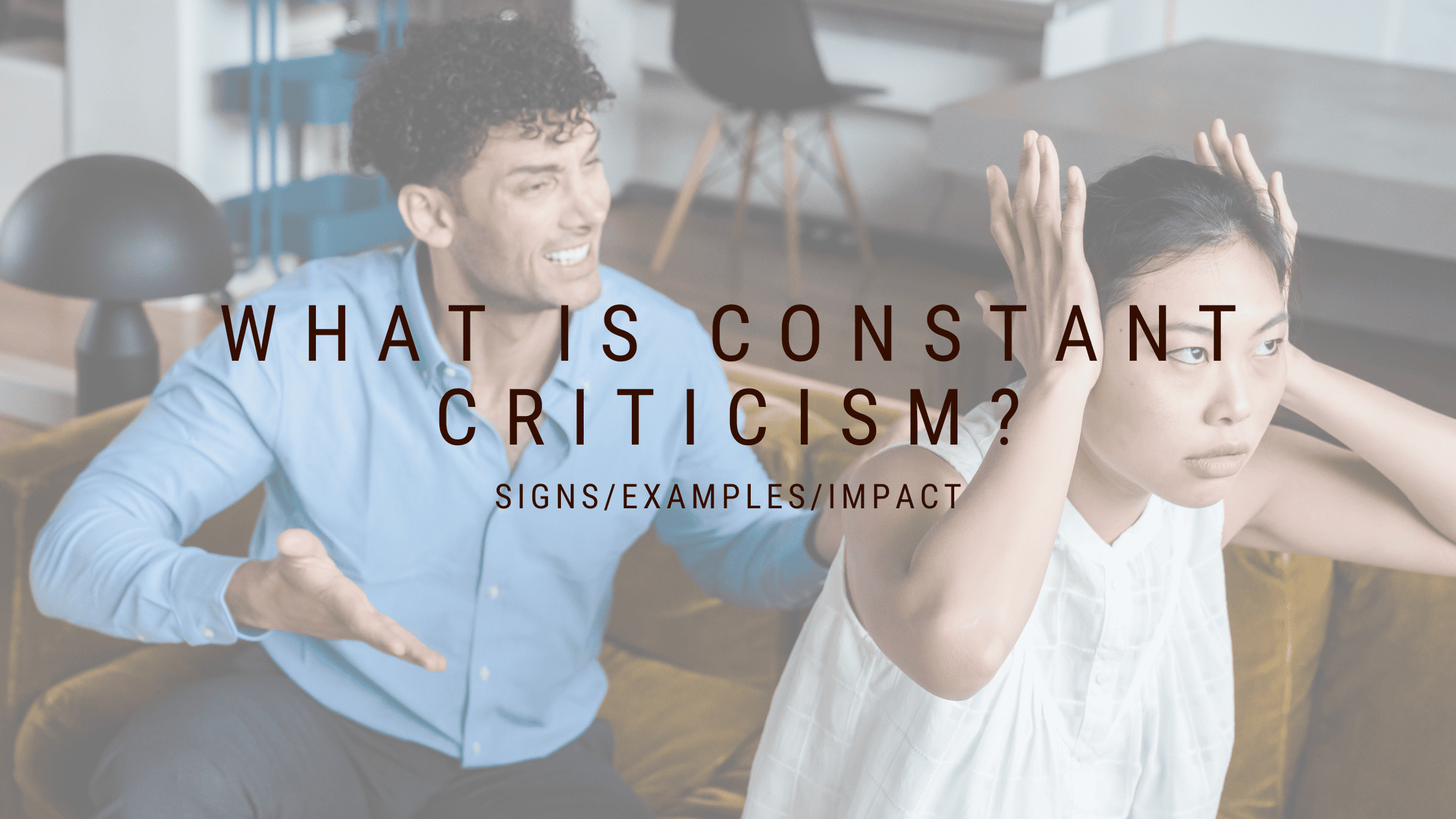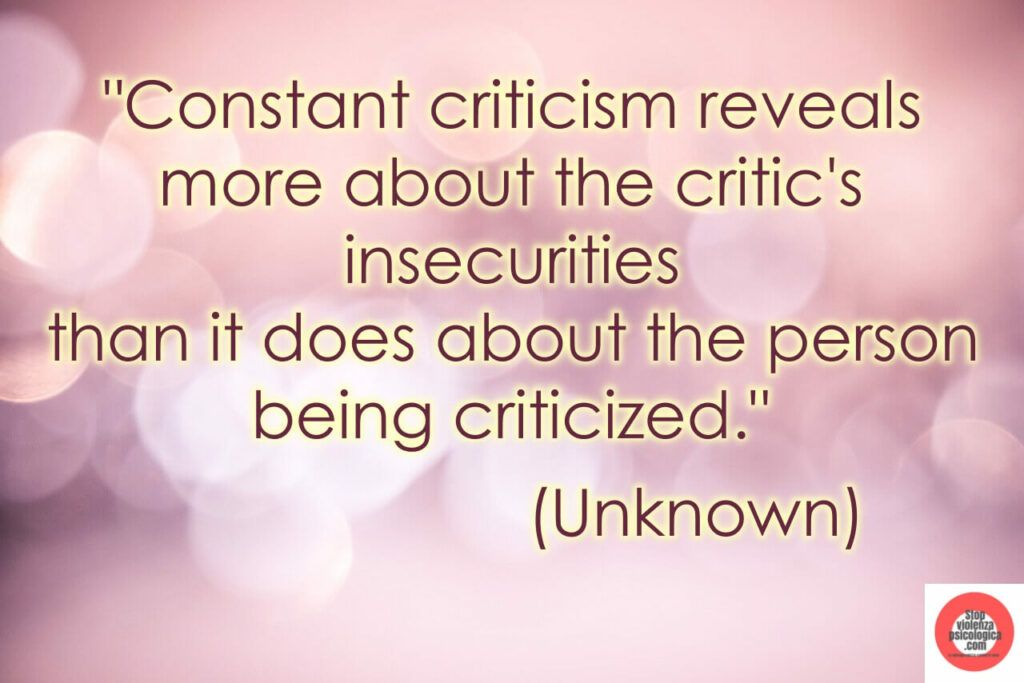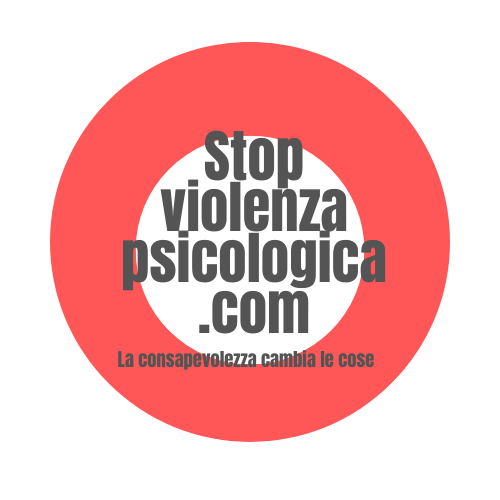Constant Criticism: A Sign of Emotional Abuse

One common manifestation of emotional abuse is constant criticism, which involves the persistent belittling, demeaning, and undermining of an individual. In this post, we will explore why constant criticism is a sign of emotional abuse and the profound impact it can have on its victims.
Emotional abuse is a devastating form of mistreatment that can have long-lasting effects on a person’s mental and emotional well-being. While it may not leave physical scars, emotional abuse can be just as damaging, if not more so, as it attacks the very core of a person’s self-esteem and self-worth.
Understanding Emotional Abuse
Emotional abuse is a pattern of behavior aimed at exerting control and power over another person through the use of psychological tactics. Unlike physical abuse, emotional abuse leaves no visible marks, making it harder to detect and address.
Constant criticism is one of the key tactics employed by emotional abusers to diminish their victims’ self-esteem and assert dominance.
Recognizing Constant Criticism as A Sign of Emotional Abuse

Constant criticism may take various forms, but its underlying goal remains the same:
to demean, devalue, and control the victim.
How does constant criticism manifest itself?
Here are some common signs of emotional abuse through constant criticism:
1. Insults and derogatory comments:
Emotional abusers often hurl insults, use demeaning language, or make hurtful remarks about the victim’s appearance, intelligence, abilities, or character. This persistent belittlement chips away at the victim’s self-confidence and self-worth.
2. Excessive fault-finding:
Emotional abusers frequently focus on finding fault with their victims, no matter how trivial or insignificant. They may criticize their partner’s actions, decisions, or choices, making them feel inadequate and incapable of meeting expectations.
3. Unreasonable expectations:
Emotional abusers often set unrealistic expectations for their victims and then criticize them for failing to meet these standards. This perpetuates a cycle of constant disappointment and self-blame, fostering a sense of powerlessness.
4. Public humiliation:
Emotional abusers may use criticism as a tool to humiliate and shame their victims in front of others. This public belittlement not only damages the victim’s self-esteem but also isolates them from potential sources of support.
Examples Of Constant Criticism as A Sign of Emotional Abuse:
Here are some examples of constant criticism as a sign of emotional abuse, including typical overt phrases and circumstances:
1. Appearance-related criticism:
– “You look terrible in that outfit. You always dress so poorly.”
– “Your weight gain is disgusting. No one will find you attractive anymore.”
2. Intelligence and competence criticism:
– “You’re so stupid. I can’t believe you can’t figure out such a simple task.”
– “You’re never going to amount to anything. You’re a failure.”
3. Parenting criticism:
– “You’re such a terrible parent. You’re always doing something wrong.”
– “You can’t even handle basic childcare responsibilities. You’re so incompetent.”
4. Constant comparison and belittlement:
– “Why can’t you be more like [insert name]? They’re so much better than you.”
– “You’re useless. Everyone else is more talented and accomplished than you.”
5. Emotional manipulation through criticism:
– “If you were a better partner, I wouldn’t have to criticize you all the time.”
– “Your flaws make me doubt whether I should even be with you.”
6. Undermining personal choices and opinions:
– “Your opinion doesn’t matter. You’re always wrong anyway.”
– “You can’t make decisions on your own. You need me to guide you.”
7. Public humiliation and embarrassment:
– Criticizing or mocking you in front of others, intentionally trying to humiliate you or make you feel ashamed.
8. Gaslighting:
– Denying or minimizing their criticism when confronted, making you question your own perception of their behavior.
It’s important to note that emotional abuse is not limited to these examples, and the severity and context of the criticism may vary.
Subtle Criticism
Subtle criticism, for instance, can be more covert and indirect compared to overt and obvious criticism.
Here are some examples of subtle criticism:
1. Backhanded compliments:
– “You did a good job on this project, but I guess anyone could have done it.”
– “Your new haircut is interesting. It’s definitely a bold choice.”
2. Sarcasm:
– “Oh, you’re so smart. I can’t believe you didn’t know that already.”
– “Wow, you’re really organized. It’s a shame your desk is always a mess.”
– “It’s interesting how you chose to do things this way.”
3. Passive-aggressive remarks:
– “I wish I could be as carefree and unconcerned about everything as you.”
– “It’s so nice how you never have to worry about being on time for anything.”
4. Undermining achievements:
– “That’s great that you got a promotion, but I heard it was because they needed someone and you were just available.”
– “You did well on your presentation, but I don’t think anyone was really paying attention.”
– “It’s not bad, but you could have done it better.”
– “I guess you tried your best, but…”
– “It’s nice that you tried, even if the result is not exactly what I expected.”
5. Withholding praise and affection:
– Rarely acknowledging your accomplishments or dismissing them as insignificant.
– “I can’t believe it took you so long to do this.”
– Being stingy with compliments or affection, making you feel like you have to constantly earn their validation.
6. Nitpicking and fault-finding:
– Continuously finding flaws and criticizing minor mistakes in your actions or decisions.
– “I can’t believe you made such a trivial mistake.”
– Focusing on insignificant details and making them seem like significant problems.
7. Dismissive responses:
– Invalidating your feelings or opinions with responses like, “You’re overreacting” or “You’re too sensitive.”
– Ignoring or downplaying your concerns, making you feel like your perspective doesn’t matter.
8. Guilt-tripping and blame-shifting:
– Using criticism to make you feel guilty or responsible for their unhappiness or dissatisfaction.
– Blaming you for their own shortcomings or mistakes, deflecting accountability onto you.
Subtle criticism can be insidious and harder to detect, as it often leaves you questioning whether you’re overreacting or being too sensitive.
Remember that emotional abuse can manifest in various ways, and it’s crucial to trust your instincts.
Constant criticism that undermines your self-worth causes persistent distress and creates a toxic dynamic in a relationship can be indicative of emotional abuse. If you recognize these patterns in your own experiences, seeking support from trusted individuals or professionals can be beneficial.

Impact of Constant Criticism:
The impact of constant criticism on the victims of emotional abuse cannot be overstated. The repeated exposure to demeaning comments and constant negativity takes a severe toll on their emotional well-being.
Here are some of the lasting effects:
1. Low self-esteem:
Constant criticism erodes the victim’s self-worth, leading to a persistent belief that they are flawed, inadequate, and undeserving of love and respect. This can result in a deep sense of shame and self-doubt that permeates various aspects of their lives.
2. Anxiety and depression:
The constant scrutiny and negative judgment can trigger anxiety and depression in the victims of emotional abuse. They may experience feelings of hopelessness, worthlessness, and a pervasive sense of sadness.
3. Isolation:
Constant criticism can make victims feel isolated and socially withdrawn. They may distance themselves from friends and family, fearing judgment or further criticism. This isolation plays into the abuser’s hands by limiting the victim’s support network.
4. Self-blame:
Victims of constant criticism often internalize the negative messages they receive, blaming themselves for the abuse. They may believe that if they were just better or more worthy, the abuse would stop, perpetuating a destructive cycle of self-blame.
Renowned psychologist Carl Rogers addressed the topic of criticism and its impact on individuals. While he didn’t specifically refer to constant criticism, he made insightful remarks about the effects of criticism and the importance of empathy in human relationships.
Here is a relevant quote from Carl Rogers:
“The curious paradox is that when I accept myself just as I am, then I can change.”
Carl Rogers
While this quote doesn’t directly mention criticism, it highlights the transformative power of self-acceptance. It implies that criticism, especially when it comes from others, can hinder personal growth and change. Rogers emphasized the significance of creating an accepting and empathetic environment, suggesting that criticism undermines the conditions necessary for positive transformation.

Breaking the Cycle:
Recognizing constant criticism as a sign of emotional abuse is crucial for both victims and those who support them.
Breaking free from the cycle of emotional abuse requires understanding, validation, and support.
Here are a few steps toward healing:
1. Acknowledge the abuse:
Recognize that constant criticism is not normal or acceptable behavior in a healthy relationship. Understanding that you deserve respect and kindness is the first step towards reclaiming your self-worth.
2. Seek support:
Reach out to trusted friends, family members, or professionals who can provide the necessary support and guidance. Support groups or counseling can be instrumental in the healing process.
3. Establish boundaries:
Set clear boundaries with the abuser and assert your right to be treated with respect. This may involve reducing or cutting off contact altogether, depending on the circumstances (no contact).
4. Maintain self-awareness:
Recognize that
constant criticism is a reflection of the other person’s issues and insecurities, rather than an accurate reflection of your worth or abilities.
Remember your own strengths, qualities, and accomplishments.
5. Practice self-care:
Engage in self-care activities that promote emotional well-being. Take time for yourself, engage in hobbies, exercise, practice mindfulness, and nurture positive relationships. Prioritize activities that boost your self-esteem and reinforce your sense of self-worth.
Conclusion:
Constant criticism is a powerful tool used by emotional abusers to maintain control and undermine their victims. Recognizing constant criticism as a sign of emotional abuse is crucial to breaking free from its destructive cycle.
Through education, support, and self-care, you, can regain your self-esteem and heal from the lasting effects of emotional abuse.
Remember, everyone deserves to be treated with kindness, respect, and empathy in all their relationships.
Thank you for reading and please share your thoughts and insights in the comments, and spread the word by sharing this post with your loved ones.

Resources:
“The Verbally Abusive Relationship – How to Recognize It and How to Respond”, Patricia Evans
